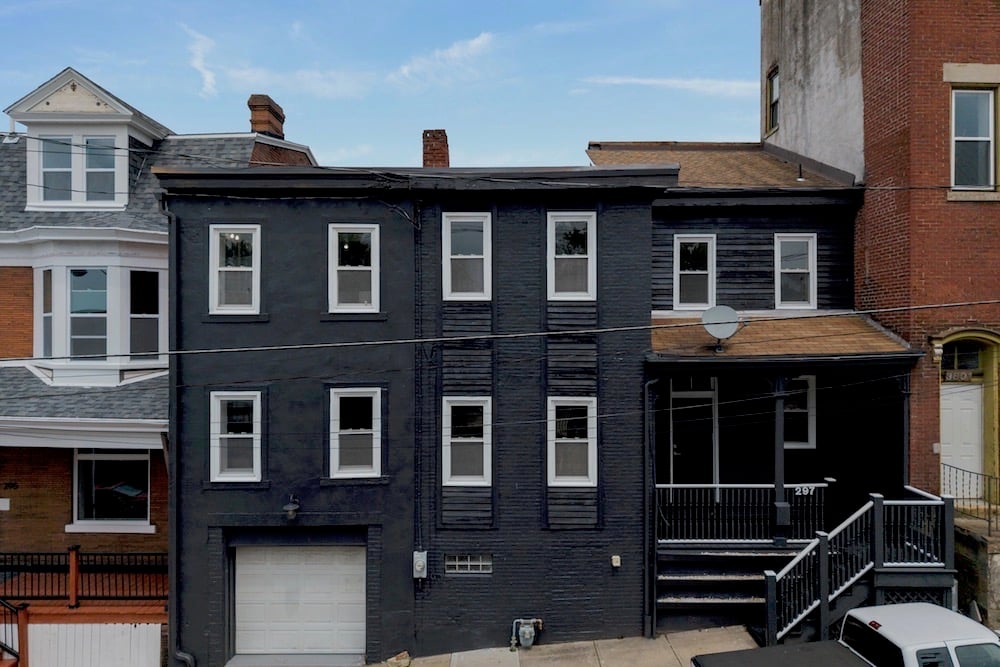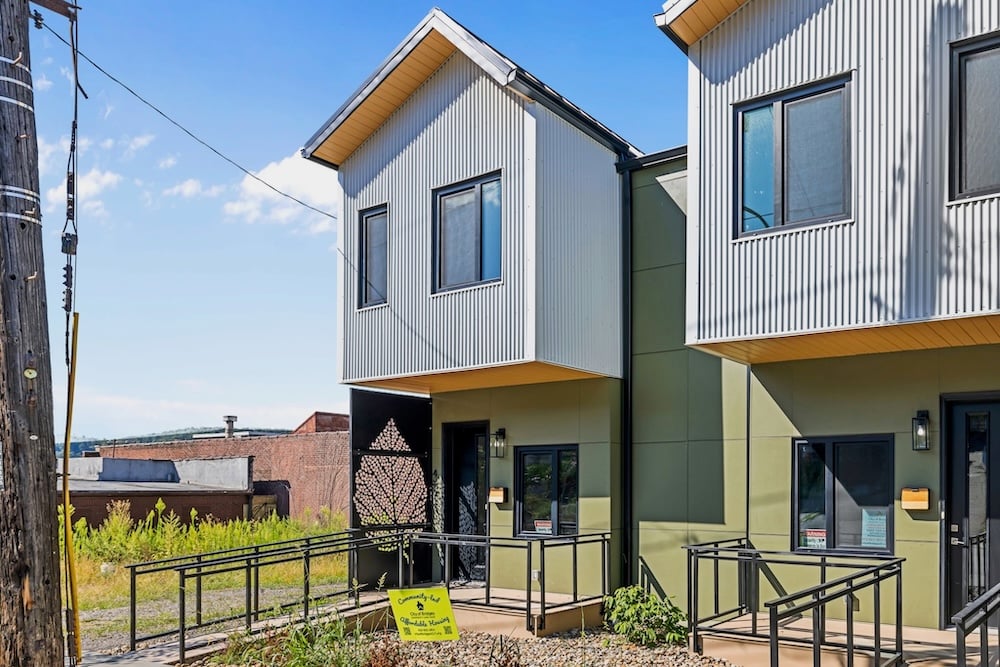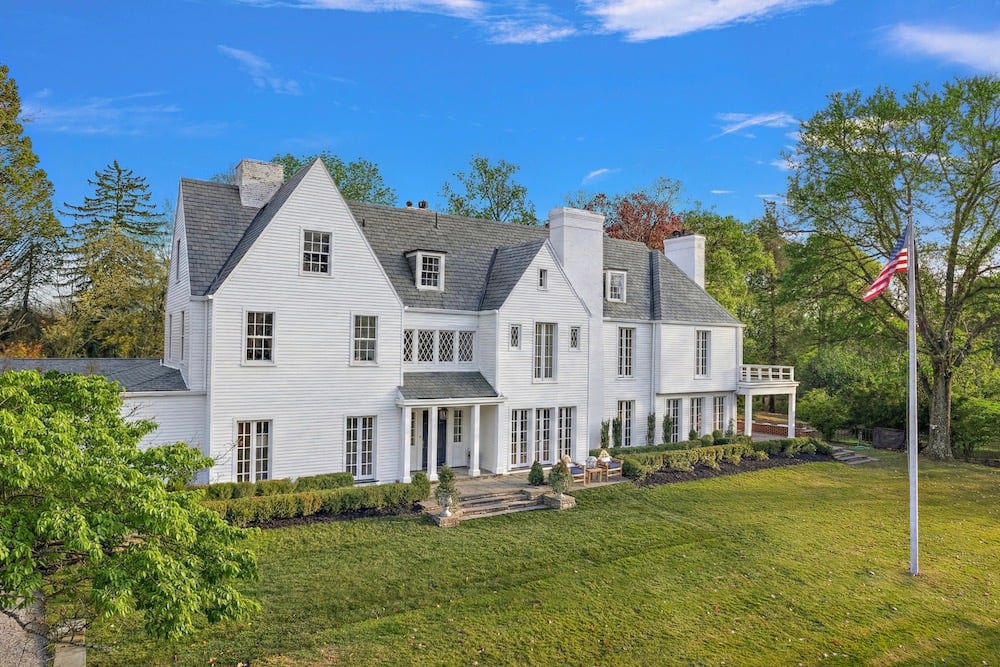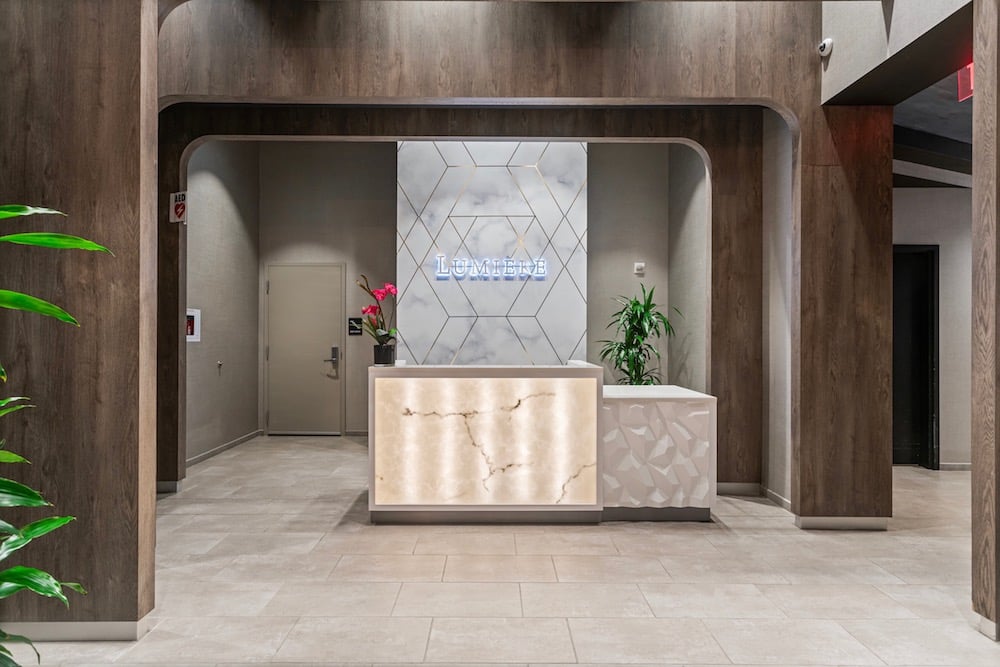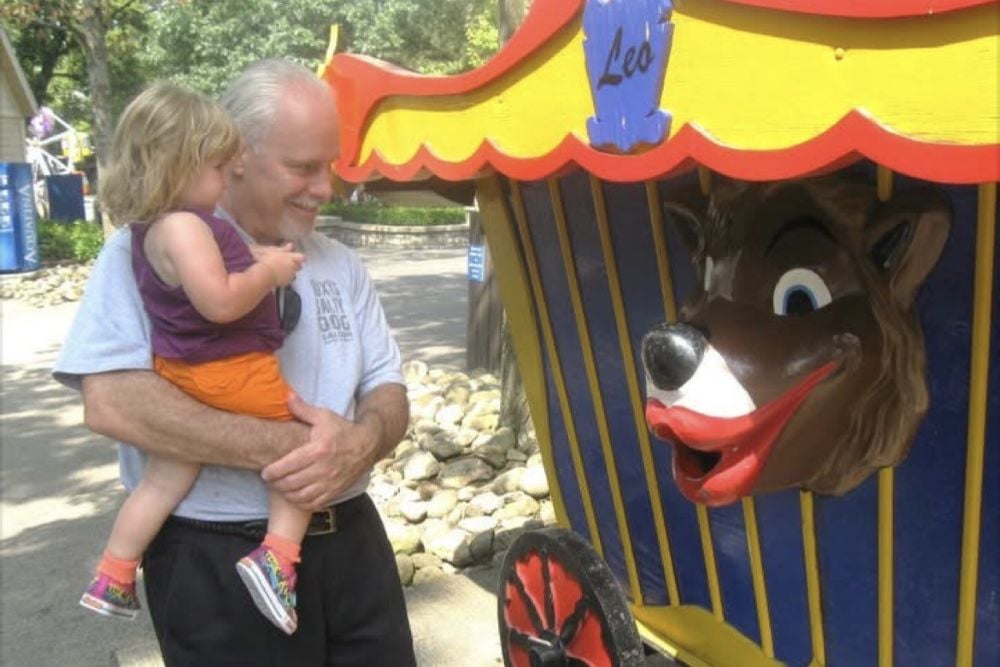Western Pennsylvania’s First African American Federal Judge Lived Here
A graduate of Harvard Law School, Paul Simmons and his wife, Gwendolyn, an active civic volunteer, were longtime residents of the historical Downer House.
It’s hard to miss the Downer House.
Situated on a hill overlooking the Monongahela River, the elegant brick home at 700 Meade St. has served as a de facto landmark for the Monongahela community for more than 100 years.
Built in 1903 by local developer Samuel Miller Downer, the nearly 4,000-square-foot home reads like a journal of the region’s past; a prominent businessman, Downer himself helped build and shape the Mon Valley region — although his family lost possession of their grand Dutch Colonial Revival home during the Great Depression.
In 1979, Paul and Gwendolyn Simmons purchased the Downer House; the accomplished couple were only the property’s third owners — and they continued Downer’s legacy of investing in the community.
“Our parents were deeply rooted in Monongahela and Washington County for decades,” their daughters, Gwen and Anne Simmons, wrote in an email to Pittsburgh Magazine.
Born and raised in Monongahela, Paul Simmons later returned to his small hometown to start his law practice. A graduate of Harvard Law School, he was Western Pennsylvania’s first African American federal judge. He died in 2014 at age 93, according to his obituary.
A former college professor, Gwendolyn Simmons, who died in 2024, was an active civic volunteer who served on the board of many nonprofits, among them the Mon Valley Chapter of the American Red Cross, according to her obituary. She was also a former chairwoman of the Washington County Hospital Authority.
When they bought Downer House near the dawn of the ’80s, the Simmons were drawn in by the property’s timeless design, according to their daughters. The home also came with a deep sense of history; To the Simmons, it felt grounded, meaningful and full of potential.
“For them, it was the best of both worlds — an easy work commute to Downtown Pittsburgh, with even quicker access to Oakland, Shadyside and Squirrel Hill, making it the perfect mix of convenience and charm,” Gwen and Anne wrote.
“It struck that rare balance between having access to a vibrant, large city and remaining immersed in the comfort and connectedness of a small town, which in this case, is actually a small city with a history dating back to the 1700s.”
In June, the Simmons sisters put their childhood home on market with Matthew Swab of Piatt Sotheby’s International Realty for $685,000.
Swab says he was first drawn in by Downer House’s elegance and grandeur; the original fir and pine floors still gleam, as does the millwork featuring fluted inlays and intricate balusters.
“It’s one of those intangible things, but you can feel it in the home. There is a sense of peace and comfort within its walls that puts me at ease,” says Swab. “I love being there.”
On the first floor, a grand center hall transports visitors back in time. The arched wooden doorway frames the central staircase, while pocket doors reveal large rooms on either side.
Every room is packed with old-world elegance, including ornate fireplaces, shoulder-height wainscotting and period-appropriate wallpaper.
All three of the home’s bathrooms have been updated, though Swab says the renovations honor the age and style of the home. The large kitchen at the rear of the home has a Mid-Century Modern style and includes a charming breakfast nook.
With one-of-a-kind details and fine craftsmanship found throughout, the home’s top two floors contain six bright and spacious bedrooms. The bathroom renovations are both stunning and functional, adds Swab.
“You can see from the selection of the wallpaper, the Waterworks tub and the Kohler fixtures that they achieved just the right balance of elegance, taste and quality without skewing too modern,” he says.
The grounds of the home are just as eye-catching, with a sweeping wraparound porch, an attractive rear courtyard and a detached two-car garage. Swab shares that one set of exterior stairs has shifted and needs to be realigned with the home, although the next owners have been advised to wait until after community water line repairs are completed to alter any exterior hardscaping.
The Simmons sisters say they are wistful about passing along their family home, but buoyed by the fact that another family will get to enjoy the community that raised them. The town also is home to longstanding businesses such as DeVore Hardware and Cox Market, a specialty grocery store.
“Monongahela isn’t just a place — it’s a true community,” they wrote. “Many neighbors have lived here for generations, and there’s a deep sense of pride in how people care for their homes and each other.”
When it comes to what the sisters will miss most about their home, it’s not the woodwork, nor the stunning fireplaces; those all served as a backdrop to something truly irreplaceable — their time with family.
“Our parents were the last of their generation of family to live in Monongahela and the greater Pittsburgh area,” they wrote. “Our mother was a gracious hostess and loved having the house filled with family and friends as family. Not to mention, she truly understood how to make a house feel like a home, and her eye for detail, second to none, filled every room.
This house was the backdrop to all of it. It holds so much love and laughter. That’s what we’ll miss the most.”
About: Monongahela
Population: 4,113
Planes, Trains & Automobiles: Monongahela is located about 45 minutes south of Pittsburgh in Washington County. It’s just under an hour drive to Pittsburgh International Airport and 45 minutes to the Arnold Palmer Regional Airport. Most residents of Monongahela need a car, as there is limited public transportation and ride-share offerings.
Schools: Ringgold School District (ringgold.org)
Neighborhood: One of just two cities in Washington County, Monongahela is the second smallest city in Pennsylvania, with a population of just over 4,000 people. Founded in 1769 on a tract of land near the confluence of Pigeon Creek and the Monongahela River, the city’s name is Native American in origin and means “falling banks.” It later became known as a coal-mining town. Local favorites include Triple B Farms as well as recreational spots such as Mingo Creek State Park. Monongahela is also the hometown of hall-of-fame quarterback Joe Montana.
























































